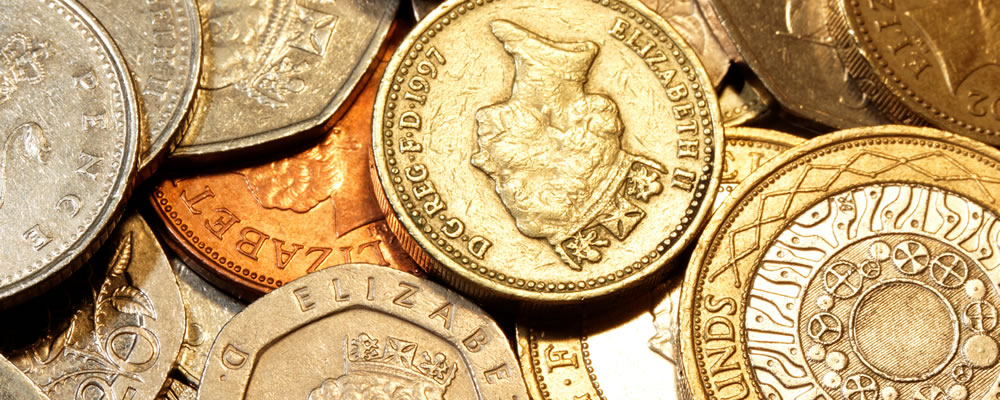- Update: UK trade figures better expectations – Deficits come in below forecast
- GBP EUR strong despite slumping consumer confidence – Brexit causes largest decline in sentiment in 21 years
- EUR Weakens on Sliding German Exports – Surprise contraction unnerves common currency
- GBP EUR forecast – UK trade figures key
GBP Bullish as UK Trade Deficit Widens Below Forecasts
Better-than-expected UK trade figures have pushed GBP EUR into a bullish rise today. The Visible Trade Balance for May was predicted to widen from a downwardly revised -£9414 million to -£10700, but the deficit only increased to -£9879. The Total Trade Balance, downwardly revised last month to -£1950, posted a wider deficit of -£2263, instead of the predicted -£3575. In the long-term, this development will be viewed as still being negative for the UK economy. A widening trade deficit is not desirable for the UK, so today’s figures could return to weigh on the Pound once the initial relief of smaller-than-expected shortfalls has abated.
(Last updated 16.53 July 8th)
Now that the early gains of yesterday’s bullish Pound rally have ebbed away, the GBP EUR exchange rate has settled around 1.1688.
Pound (GBP) Holds Opening Levels regardless of Consumer Confidence Plunge
A record 21-year plunge in UK consumer confidence has failed to particularly weigh on the Pound this morning. The latest GfK report is especially important considering it was conducted after the UK’s referendum vote took place, making it one of the first data releases to accurately reflect sentiment in post-‘Brexit’ Britain.
The result showed a huge drop in the already negative confidence index, with a -8 point decline leaving sentiment wallowing at -9. Breaking up the data into political viewpoints reveals a large split in the country, with ‘Remainers’ significantly more concerned over the future of the UK than ‘Leavers’. It is hardly surprising that those who voted to remain in the EU repored lower levels of confidence (-13) than those who backed leaving the union (-5).
All survey indicators registered a decline.
Euro (EUR) Falls after German Trade Balance Figures Reveal Export Slump
The Euro has weakened virtually across the board today in response to weak German trade balance data. The trade surplus for May was expected to decline from €25.7 billion to €23.5 billion, but actually clocked in significantly lower at €21 billion. This was due to an unexpected decline in export growth. While an acceleration from 0.1% to 0.4% was anticipated, seasonally-adjusted exports instead dropped -1.8% on the month. Imports grew just 0.1% after the previous month’s -0.3%, scuppering forecasts of 0.7% expansion.
Speaking of the data, ING Economist Carsten Brzeski, commented;
‘Today’s trade data mark the end of a disappointing week for the German industry. All May data point to a sharp slowdown of the German industry.’
Pound Euro (GBP EUR) Exchange Rate Forecast; UK Trade Data in Focus
The day’s Eurozone data has already been published, leaving only UK releases left to come. These consist of trade figures for May, with growing deficits forecast for the Visible Trade Balance, the Trade Balance Non EU and the Total Trade Balance.
While it is true that most UK data at present is having a muted impact, as it depicts the state of the economy before the paradigm-shifting ‘Brexit’ vote, today’s trade balance figures are likely to be more keenly noted. What kind of trade deal the UK is able to strike with the European Union will be a key determining factor in the country’s economic prosperity once the UK formally leaves the EU. Many on the ‘Leave’ camp still insist that the UK will be able to get access to the prized single market without having to accept free movement in return. A growing chorus of EU officials have firmly refuted this claim, however.
A weak set of trade figures will therefore cast further shadows over the health of the UK economy going forward. The Bank of England (BoE) has already highlighted that the UK’s current account as one of the aspects of the UK economy most at risk. While the BoE is largely concerned with falling levels of foreign direct investment, the current account balance will be made even more vulnerable if the trade balance – one of the underlying factors used to calculate the current account – moves further into deficit.
Current GBP, EUR Conversion Rates
The Pound Euro (GBP EUR) exchange rate is currently trading in the region of 1.1652 and 1.1699, while the Euro Pound (GBP EUR) exchange rate is trending in the region of 0.8545 and 0.8576.



